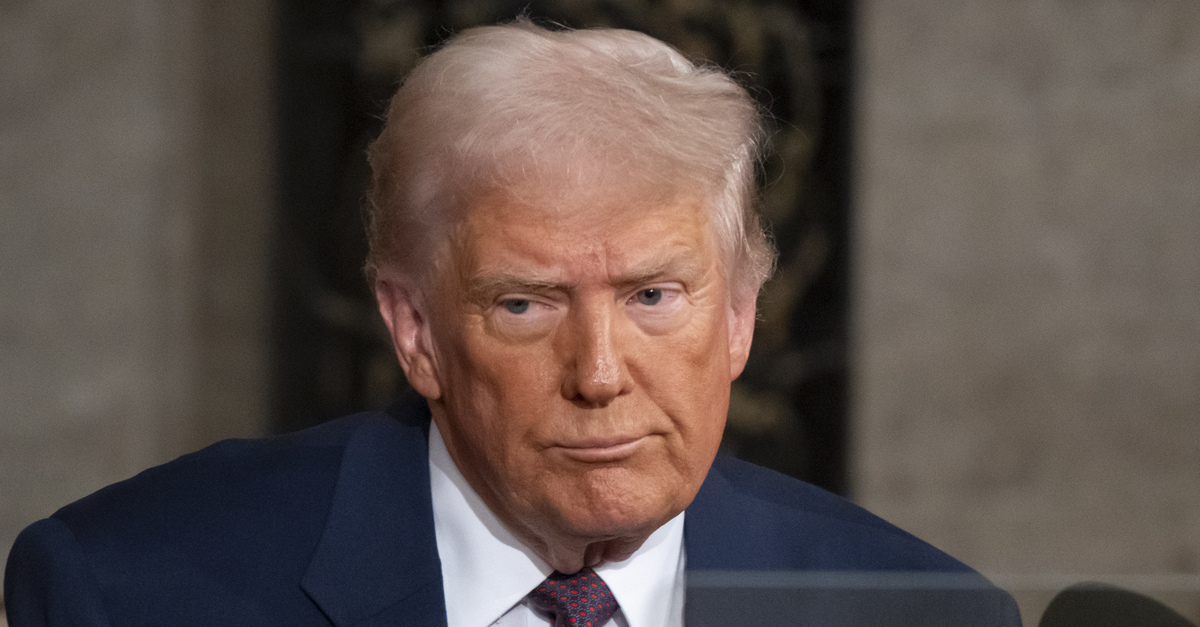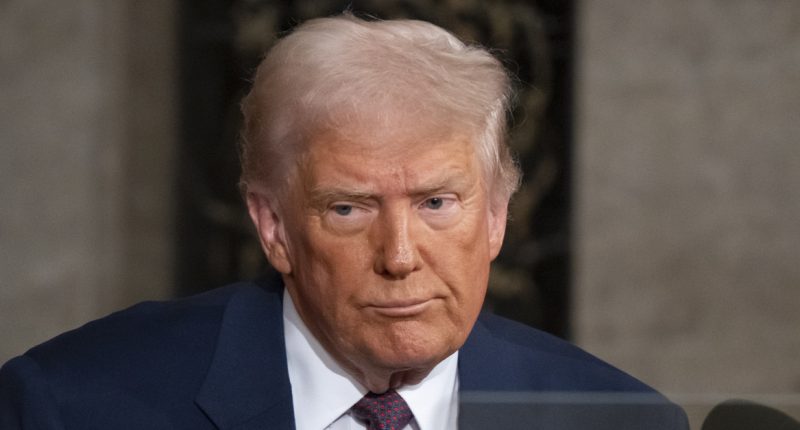
President Donald Trump addresses a joint session of Congress on Capitol Hill in Washington, Tuesday, March 4, 2025 (AP Photo/Alex Brandon).
When the U.S. Supreme Court on Monday vacated a temporary restraining order (TRO) prohibiting President Donald Trump from deporting Venezuelan migrants under an 18th century wartime authority, the ruling indicated the case would be adjudicated in Texas, where appeals are overseen by the most conservative federal circuit in the nation. However, a federal judge in New York on Wednesday issued a separate TRO one day after attorneys for the American Civil Liberties Union (ACLU) filed a class-action lawsuit in challenging the administration’s fast-tracked deportations under the Alien Enemies Act of 1798 (AEA) on behalf of two Venezuelan nationals currently being detained in the state.
U.S. District Judge Alvin Hellerstein granted the petitioners’ request to halt deportations of Venezuelan migrants under the AEA, according to a courtroom report from MSNBC legal contributor Adam Klasfeld. The TRO is not nationwide, reportedly only covering individuals currently detained in the Southern District of New York.
The two unnamed migrants, ages 21 and 32, filed the 21-page lawsuit seeking the emergency ordering preventing the federal government from moving the plaintiffs out of the jurisdiction and from deporting any similarly situated migrants under the AEA.
According to the complaint filed in the Southern District of New York, in the wake of the Supreme Court’s vacating the TRO, the administration “is resuming its summary removals of Venezuelans who are in ongoing immigration proceedings, including Petitioners here, without any judicial review — including by this Court.”
“Respondents seek to move Petitioners in secret, without due process, to a prison in El Salvador known for dire conditions, torture, and other forms of physical abuse — possibly for life,” the complaint states.
The judge scheduled a hearing in the matter for Wednesday.
Trump on March 15, 2025, became the first president since World War II to invoke the AEA, which authorizes him to summarily remove “natives, citizens, denizens, or subjects” of a “hostile nation or government” when there is “declared war” against it or when it has “perpetrated, attempted, or threatened against the territory of the United States” an “invasion or predatory incursion.” In a controversial and novel use of the power, Trump declared the Venezuelan gang Tren de Aragua (TdA) had committed or attempted an “invasion” or “predatory incursion” such that any member of the group was summarily removable under the Act.
The administration asserted that the gang constituted a “hybrid criminal state” for purposes of invoking the AEA.
After the administration sent more than 100 accused gang members to a notorious work prison in El Salvador without due process, a federal judge in Washington, D.C., halted the use of the AEA hours after its invocation. A series of contentious court filings and hearings followed until the Supreme Court ruled 5-4 that the class action case should have been filed as individual habeas corpus petitions in Texas, where the migrants were being detained.
However, all nine justices were in agreement that, unlike the initial 137 migrants deported on March 15, any individuals the administration attempts to deport under the AEA going forward are entitled to notice and due process.
But the New York plaintiffs claim the government has not afforded them an opportunity to contest the designation as members of TdA.
“[S]ince the Supreme Court stayed that order on the basis that Petitioners had to proceed through habeas, Petitioners and others similarly situated to them are now all at imminent risk of removal,” the complaint states. “In fact, ‘the government in no uncertain terms [has] conveyed that — were the injunction lifted — it would immediately begin deporting the plaintiffs without notice.””
Similar to the plaintiffs in the Washington, D.C., case, the ACLU is also arguing that Trump’s invocation of the AEA is an unlawful use of the wartime authority.
“[T]he AEA has only ever been a power invoked in time of war, and plainly only applies to warlike actions: it cannot be used here against nationals of a country — Venezuela — with whom the United States is not at war, which is not invading the United States, and which has not launched a predatory incursion into the United States,” the document states.
Love true crime? Sign up for our newsletter, The Law&Crime Docket, to get the latest real-life crime stories delivered right to your inbox.








